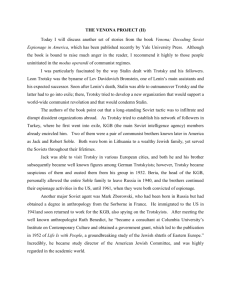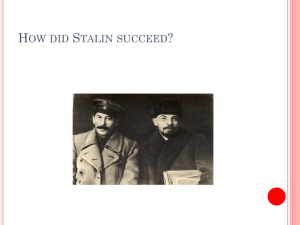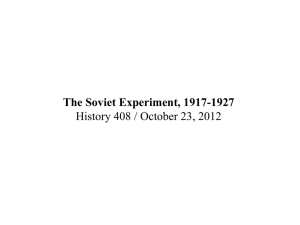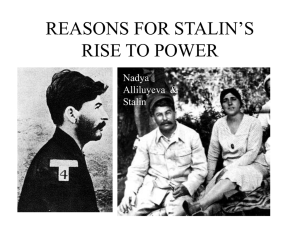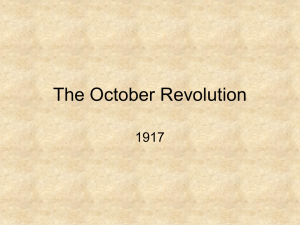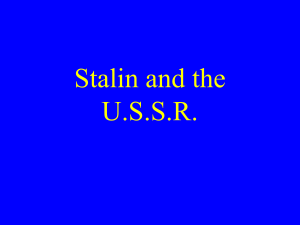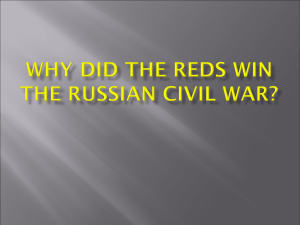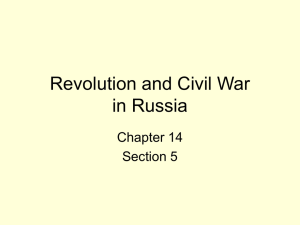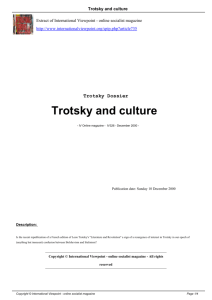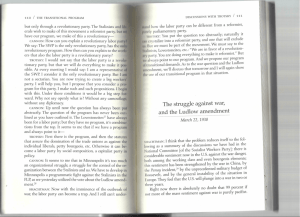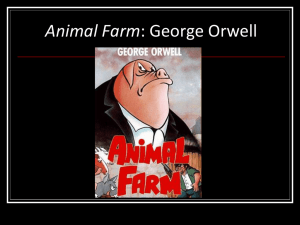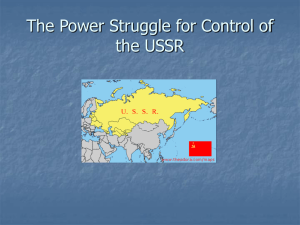Trotsky_booklet
advertisement
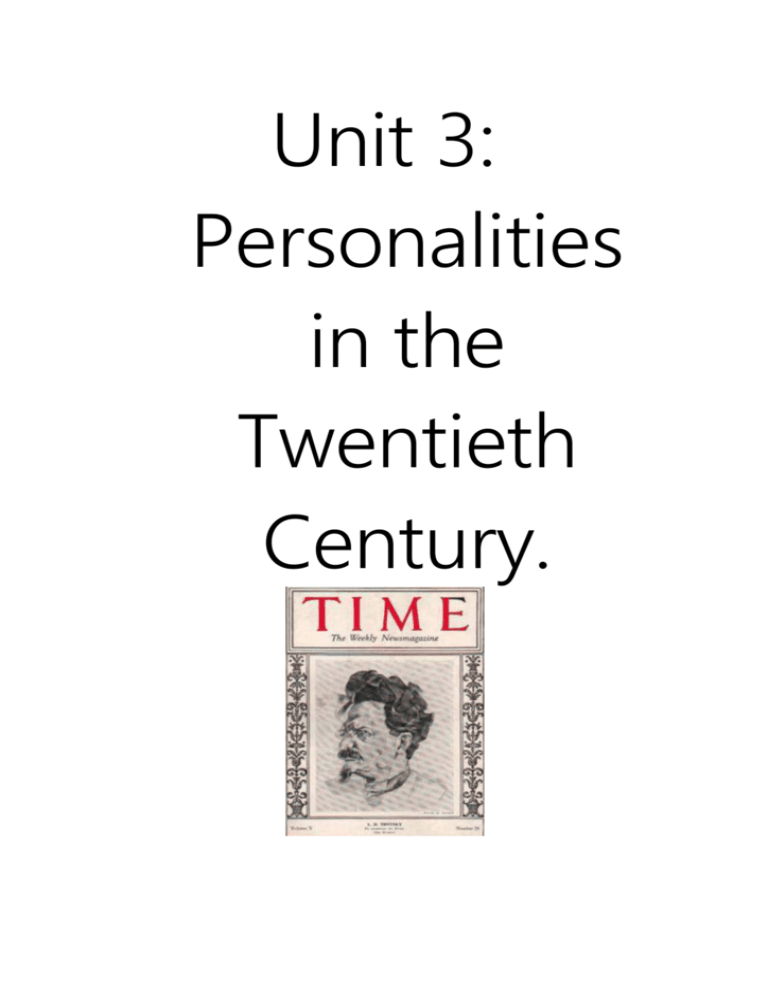
Unit 3: Personalities in the Twentieth Century. Leon Trotsky. 10.3 Part III: Personalities in the Twentieth Century Percentage of course time: 25% Principal focus: Through the study of a modern personality, students gain an understanding of the role of the individual in a period of national or international history. Outcomes Students: H1.1 describe the role of key features, issues, individuals, groups and events of selected twentieth-century studies H1.2 analyse and evaluate the role of key features, issues, individuals, groups and events of selected twentieth-century studies H2.1 explain forces and ideas and assess their significance in contributing to change and continuity during the twentieth century H3.1 ask relevant historical questions H3.2 locate, select and organise relevant information from different types of sources H3.3 analyse and evaluate sources for their usefulness and reliability H3.4 explain and evaluate differing perspectives and interpretations of the past H3.5 plan and present the findings of historical investigations, analysing and synthesising information from different types of sources H4.1 use historical terms and concepts appropriately H4.2 communicate a knowledge and understanding of historical features and issues using appropriate and well-structured oral and written forms Students learn to: ask relevant historical questions locate, select and organise information from different types of sources, including ICT, to describe and analyse relevant features and issues assess the impact of the personality on twentieth-century history analyse the contribution of the personality to the period in which they lived account for and assess differing perspectives and interpretations of the personality evaluate the usefulness and reliability of sources present the findings of investigations on aspects of the personality, analysing and synthesising information from different types of sources communicate an understanding of relevant concepts, features and issues using appropriate and well-structured oral and/or written and/or multimedia forms including ICT. Option 24: Leon Trotsky 1879–1940 Principal focus: Through the study of Leon Trotsky, students gain an understanding of the role of this personality in a period of national or international history. Students learn about: 1 Historical context politics in pre-revolutionary Russia the 1917 revolution establishment of the Bolshevik/Communist state power struggle with Stalin 2 Background family background and education development of political ideals 3 Rise to prominence emerging political role 1905–1917 role in 1917 revolution 4 Significance and evaluation role as Commissar for Foreign Affairs role as Commissar for War power struggle following the death of Lenin expulsion from the Communist Party life and activities in exile evaluation: for example practical revolutionary, naïve idealist? Using the Internet research the following about the early life of Leon Trotsky. When and where Trotsky was born: Trotsky’s real name: When and why did Trotsky change his name? When and where did Trotsky become a full-time revolutionary? When and where did Trotsky join the Social Democratic Party? Which side did Trotsky take in the split in the Social Democratic Party in 1903 and why? Significant Revolutionary Activities between the years1905 and 1917: When and why did Trotsky join the Bolsheviks? PMI Chart. Topic: Trotsky’s Role in the Consolidation of Bolshevik Power (1917-24) P M I (positive points) (minus/negative (interesting points) points) Defeat by Stalin The struggle for power with Stalin. Lenin’s natural successor. How did Stalin outmanoeuvr e Trotsky? Trotsky’s Defeat. Evaluation of Trotsky’s role in the power struggle. Explain (Relate cause and effect; make the relationships between things evident; provide why and or how) the factors that led to Lev Bronstein (Trotsky) becoming a revolutionary. Outline (Show the main parts of; describe in general) the main achievements of Leon Trotsky’s career up to and including 1917. ‘There is no finer Bolshevik’ said Lenin of Trotsky in 1921. In light of this statement, assess (Make judgement about the value, quality, outcomes results or size) the importance of Leon Trotsky to the Bolsheviks in the period from 1917 to 1922. Evaluate (Make a judgement based on criteria; determine the value of…) the view that Trotsky was largely responsible for his own decline. Discuss (Identify issues and provide points for and/or against) how history has judged Leon Trotsky. Account for (Give reasons for; report on) the existence of different historical perspectives on Leon Trotsky.
